Cyclobutaneacetic acid,3-acetyl-2,2-dimethyl-
Modify Date: 2024-01-06 17:29:13

Cyclobutaneacetic acid,3-acetyl-2,2-dimethyl- structure
|
Common Name | Cyclobutaneacetic acid,3-acetyl-2,2-dimethyl- | ||
|---|---|---|---|---|
| CAS Number | 473-72-3 | Molecular Weight | 184.23200 | |
| Density | 1.065g/cm3 | Boiling Point | 305.2ºC at 760mmHg | |
| Molecular Formula | C10H16O3 | Melting Point | 104-107ºC | |
| MSDS | N/A | Flash Point | 152.6ºC | |
| Name | Pinonic acid |
|---|---|
| Synonym | More Synonyms |
| Density | 1.065g/cm3 |
|---|---|
| Boiling Point | 305.2ºC at 760mmHg |
| Melting Point | 104-107ºC |
| Molecular Formula | C10H16O3 |
| Molecular Weight | 184.23200 |
| Flash Point | 152.6ºC |
| Exact Mass | 184.11000 |
| PSA | 54.37000 |
| LogP | 1.71240 |
| Index of Refraction | 1.48 |
Synonym:cis-3-Acetyl-2,2-dimethylcyclobutaneacetic aci Section 2 - COMPOSITION, INFORMATION ON INGREDIENTS
Risk Phrases: 36/37/38 Section 3 - HAZARDS IDENTIFICATION EMERGENCY OVERVIEW
Irritating to eyes, respiratory system and skin. Potential Health Effects Eye: Causes eye irritation. Skin: Causes skin irritation. Ingestion: Causes gastrointestinal irritation with nausea, vomiting and diarrhea. The toxicological properties of this substance have not been fully investigated. Inhalation: Causes respiratory tract irritation. Chronic: Not available. Section 4 - FIRST AID MEASURES Eyes: Flush eyes with plenty of water for at least 15 minutes, occasionally lifting the upper and lower eyelids. Get medical aid. Skin: Flush skin with plenty of water for at least 15 minutes while removing contaminated clothing and shoes. Get medical aid if irritation develops or persists. Ingestion: Get medical aid. Wash mouth out with water. Inhalation: Remove from exposure and move to fresh air immediately. Get medical aid if cough or other symptoms appear. Notes to Physician: Section 5 - FIRE FIGHTING MEASURES General Information: As in any fire, wear a self-contained breathing apparatus in pressure-demand, MSHA/NIOSH (approved or equivalent), and full protective gear. Extinguishing Media: Use foam, dry chemical, or carbon dioxide. Section 6 - ACCIDENTAL RELEASE MEASURES General Information: Use proper personal protective equipment as indicated in Section 8. Spills/Leaks: Vacuum or sweep up material and place into a suitable disposal container. Section 7 - HANDLING and STORAGE Handling: Avoid breathing dust, vapor, mist, or gas. Avoid contact with skin and eyes. Storage: Store in a cool, dry place. Store in a tightly closed container. Section 8 - EXPOSURE CONTROLS, PERSONAL PROTECTION Engineering Controls: Facilities storing or utilizing this material should be equipped with an eyewash facility and a safety shower. Exposure Limits CAS# 473-72-3: Personal Protective Equipment Eyes: Wear chemical splash goggles. Skin: Wear appropriate protective gloves to prevent skin exposure. Clothing: Wear a chemical apron. Respirators: A NIOSH/MSHA approved air purifying dust or mist respirator or European Standard EN 149. Section 9 - PHYSICAL AND CHEMICAL PROPERTIES Physical State: Solid Color: white to pale yellow Odor: Not available. pH: Not available. Vapor Pressure: Not available. Viscosity: Not available. Boiling Point: Not available. Freezing/Melting Point: 104 - 107 deg C Autoignition Temperature: Not available. Flash Point: Not available. Explosion Limits, lower: Not available. Explosion Limits, upper: Not available. Decomposition Temperature: Solubility in water: Specific Gravity/Density: Molecular Formula: C10H16O3 Molecular Weight: 184.23 Section 10 - STABILITY AND REACTIVITY Chemical Stability: Not available. Conditions to Avoid: Not available. Incompatibilities with Other Materials: Strong oxidizing agents. Hazardous Decomposition Products: Carbon monoxide, carbon dioxide. Hazardous Polymerization: Has not been reported. Section 11 - TOXICOLOGICAL INFORMATION RTECS#: CAS# 473-72-3: GU0200000 LD50/LC50: Not available. Carcinogenicity: cis-Pinonic acid, 98% - Not listed by ACGIH, IARC, or NTP. Other: See actual entry in RTECS for complete information. Section 12 - ECOLOGICAL INFORMATION Section 13 - DISPOSAL CONSIDERATIONS Dispose of in a manner consistent with federal, state, and local regulations. Section 14 - TRANSPORT INFORMATION IATA Not regulated as a hazardous material. IMO Not regulated as a hazardous material. RID/ADR Not regulated as a hazardous material. Section 15 - REGULATORY INFORMATION European/International Regulations European Labeling in Accordance with EC Directives Hazard Symbols: XI Risk Phrases: R 36/37/38 Irritating to eyes, respiratory system and skin. Safety Phrases: S 26 In case of contact with eyes, rinse immediately with plenty of water and seek medical advice. S 37/39 Wear suitable gloves and eye/face protection. WGK (Water Danger/Protection) CAS# 473-72-3: No information available. Canada None of the chemicals in this product are listed on the DSL/NDSL list. CAS# 473-72-3 is not listed on Canada's Ingredient Disclosure List. US FEDERAL TSCA CAS# 473-72-3 is not listed on the TSCA inventory. It is for research and development use only. SECTION 16 - ADDITIONAL INFORMATION N/A |
CHEMICAL IDENTIFICATION
HEALTH HAZARD DATAACUTE TOXICITY DATA
|
| Hazard Codes | Xi:Irritant; |
|---|---|
| Risk Phrases | R36/37/38 |
| Safety Phrases | S26-S37/39 |
| Precursor 0 | |
|---|---|
| DownStream 9 | |
| CIS-PINONIC ACID |
| (+/-)-cis-3-acetyl-2,2-dimethylcyclobutaneacetic acid |
| 3-acetyl-2,2-dimethyl-cyclobutaneaceticaci |
| 3-acetyl-2,2-dimethylcyclobutaneaceticacid |
| Cyclobutaneacetic acid,3-acetyl-2,2-dimethyl |
| cis-3-acetyl-2,2-dimethylcyclobutylacetic acid |
| PINONIC ACID(P) |
| (3-Acetyl-2,2-dimethylcyclobutyl)acetic acid |
| cis-(2,2-dimethyl-3-acetylcyclobutyl)acetic acid |
 CAS#:104729-89-7
CAS#:104729-89-7 CAS#:143301-49-9
CAS#:143301-49-9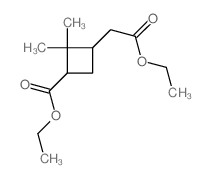 CAS#:28664-03-1
CAS#:28664-03-1 CAS#:2234-20-0
CAS#:2234-20-0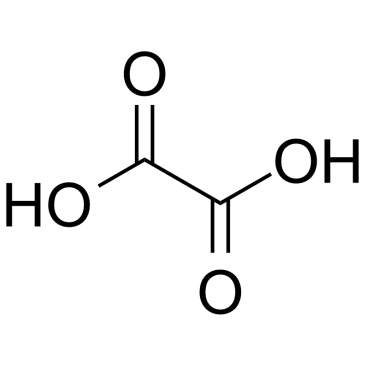 CAS#:144-62-7
CAS#:144-62-7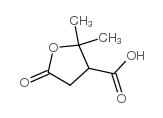 CAS#:79-91-4
CAS#:79-91-4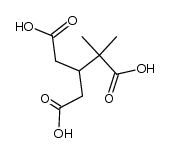 CAS#:2051-44-7
CAS#:2051-44-7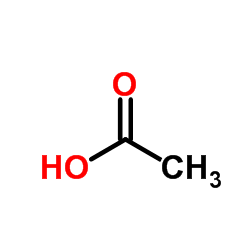 CAS#:64-19-7
CAS#:64-19-7 CAS#:6331-04-0
CAS#:6331-04-0